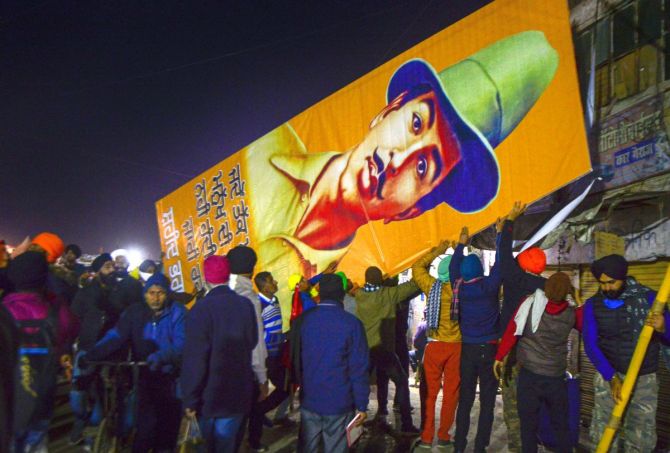
Much has been spoken about the revolutionary life of Bhagat Singh. Be it in history books or movies, his revolutionary actions which had trembled the British imperialists have been sufficiently presented and his martyrdom is rightly venerated. But what is seldom spoken about is his ideas which are clearly reflected in his writings, and which guided his actions that transformed him from a romantic revolutionary into a socialist.
In the current context when the attack on the toiling masses is intensifying with every passing day, one needs to study his writings more closely in the quest to achieve complete revolution in this country.
In recent times, when the scientific temper of educational institutions is under threat with the promotion of pseudo-sciences and non-sciences in the name of ancient Indian sciences and anti-people outlook, his article “Why I am an Atheist” has to be studied with the greatest attention.
He said: “It is necessary for every person who stands for progress to criticize every tenet of old beliefs. Item by item he has to challenge the efficacy of old faith.”, and only after rigorous reasoning and analysis one should stand in favor of any philosophy or faith.
His thoughts stand staunchly against any kind of blind belief and he states that such practice deprives a man of his understanding power and makes him stand against progress of the society.
Bhagat Singh said, “The peasant who grows corn for all, starves with his family, the weaver who supplies the world market with textile fabrics, has not enough to cover his own and his children’s bodies, masons, smiths and carpenters who raise magnificent palaces, live like pariahs in the slums.”
The above mentioned lines seem like a very recent picture of our society, but to the surprise they were loudly said by Bhagat Singh around 90 years back in court to the magistrate. These lines by Bhagat Singh clearly speak of the naked truth about our society which remains the same even after a century.
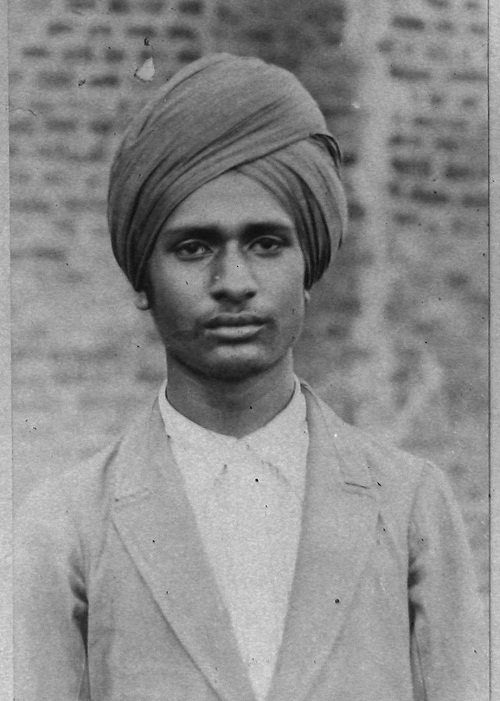
Bhagat Singh writes about the importance of participating in political activities by the youth and students of this country in one of his important writings ‘Students and Politics’. In the article he writes,
‘We understand that the main task of the students is to study, they should pay full attention towards it; but is it not a part of the education to gather knowledge regarding the situation that our country is in and develop the ability to think about measures to improve it? If not, we consider this education, which is only obtained to gain some clerical skills, of no use. What is the use of this kind of education?’
When India is going through a Brahminical Hindutva fascist regime of RSS-BJP with the increase in an onslaught on Dalits, Muslims, Adivasis and the working people, Bhagat Singh’s vision becomes more and more relevant. His articles named “Communal Riots and its Solutions” and “Problems of Untouchability” clearly condemns the division of working people in the name of religion and caste and exposes it to be a policy of the ruling establishment to keep the people away from revolting against their real problems. He wrote:
“The root cause of communal violence is probably economic… To prevent people from fighting each other, ‘class consciousness’ is the need of the day. The poor laborers and the farmers must be clearly taught that their real enemies are the capitalists.”
He warned the Dalits to stay away from the imperialist bureaucracy as he identified the same to be the cause of their slavery and poverty. He emphasized the need for organizing Dalits and to revolt against the present system and bring a revolution to come out of the menace of caste.
As a Marxist, Bhagat Singh defined revolution as “the complete overthrow of the existing social order and its replacement with the socialist order” as written in the article “To Young Political Workers”. Against the Gandhian way of compromise and reforms under the British structure, he showed the alternate path to the youth of organizing the working class and the peasantry and to work for a destruction of the present system and rebuilding the economic and political structure of the nation.
He analyzed the prevailing conditions, and advised the youth to adopt Marxism as the ideology and form a Communist Party. He stressed that the involvement of huge masses in revolution is elementary, but it would not follow the Gandhian path of non-violence. At that young age, he was quite mature to use all forms of struggles (legal and illegal) in order to complete the revolution. He said,
“The sanctity of law can be maintained only so long as it is the expression of the will of the people.”
While acting as the vanguard of the national liberation movement of India, he envisaged that revolutionaries had to be part of the international communist movement.
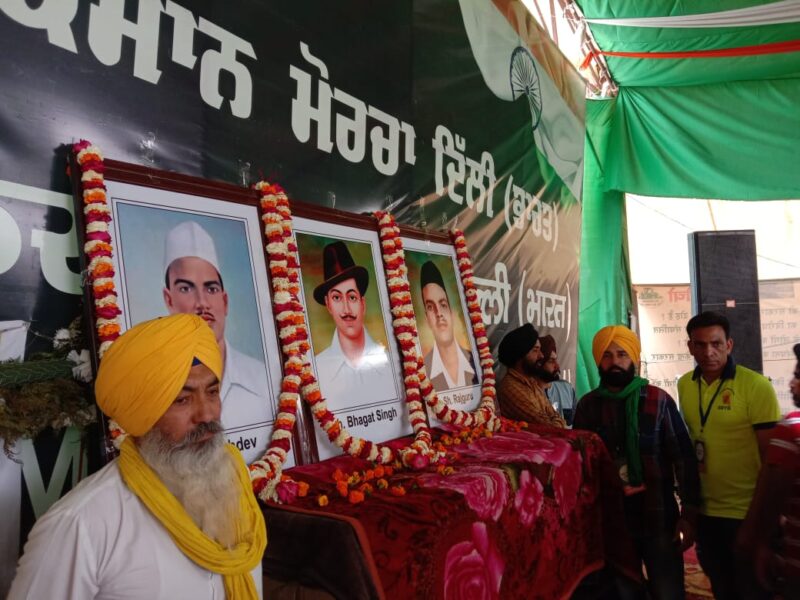
Had Bhagat Singh been alive in today’s day, he would have surely been dubbed as an Urban Naxal and his organization, Hindustan Republican Socialist Organization Association, would have been banned in the country. If today anybody dares to think, say or act in the same way as Shaheed Bhagat Singh did, he would probably be charged with UAPA and put behind bars. It is precisely in this context that we should remember him and take inspiration from his life.
Just a glimpse of his writings exposes the lies that the right-wing forces uses in their attempts to appropriate him by organizing Tiranga marches and paying tributes. He had done detailed studies of the history of Bolshevik revolution and writings by various Marxists. He was clear that it did not matter whether Purushottam Das Thakur (a wealthy industrialist of his times) ruled India or the British if the exploitation of man by man has not ended. He said:
“Let us declare that the state of war does exist and shall exist so long as the Indian toiling masses and the natural resources are being exploited by a handful of parasites. They may be purely British Capitalist or mixed British and Indian or even purely Indian.”
This understanding perfectly sums-up the present struggles of labourers, farmers and working people nationwide against the Brahminical Hindutva fascist forces.


















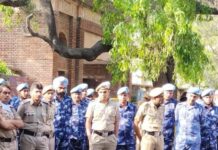






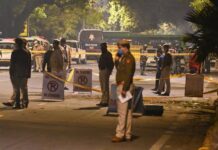




[…] Also Read– Remembering Bhagat Singh: Ideas That Can’t Be Killed […]
[…] revolutionary group consisted of Bhagat Singh, Sukhdev (Punjabis), Rajguru (Maharashtrian), Jyotish Chander Pal (Orissa) to name a few. These […]
[…] Remembering Bhagat Singh: Ideas That Can’t Be Killed […]